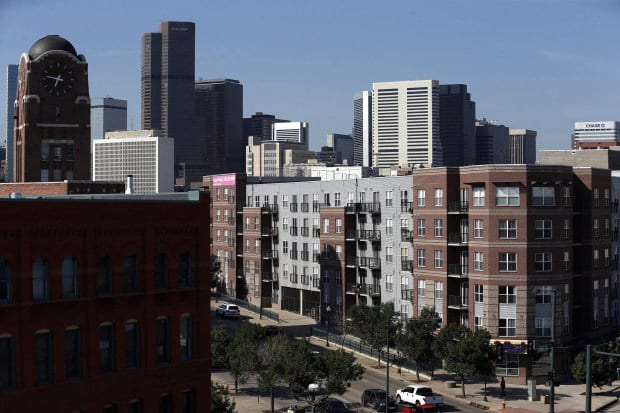After staying flat or declining during much of the pandemic last year, apartment rents in Colorado are rapidly making up for lost ground, even in hard-hit areas like Denver, according to a monthly update from Apartment List.
“The trend in Colorado appears consistent with what we’re seeing across the country: Rents rising everywhere at the moment, but big cities are still recovering from 2020 price drops while many smaller cities experienced positive growth through much of last year as well as this year,” said Rob Warnock, a senior research associate with the San Francisco-based portal for apartment listings.
After declining in January, apartment rents have been rising in the city of Denver for the past five months, including a whopping 3% increase between May and June which helped push the year-over-year gain to 5.8% and the gain since the pandemic started to 3.2% Median rents in Denver stand at $1,390 for a one-bedroom apartment and $1,700 for a two-bedroom.
Still, Denver’s annual rent gain remains way below the statewide gain of 9.5%, which includes a 3% gain the past month, and the national gain in apartment rents of 8.4%. Nor do they approach the double-digit rent hikes handed out in Colorado Springs and the south metro suburbs.
Colorado Springs apartment rents are up 16.6% since the pandemic started in March 2020 and 2.8% the past month, making it the metro with the biggest rent increases in the state. Fort Collins rents are 9.4% higher than they were in March of last year and up 2.7% monthly, which matches Aurora, while Boulder is 7.7% higher, including a monthly gain of 2.6%.
The weakest market among those tracked in Colorado, even weaker than Denver, is Greeley, which has only had a 2.5% gain since the pandemic started, nearly half of which came because of a 1.2% gain between May and June.
The biggest rent recovery is coming in the southern suburbs, led by Castle Rock, which has seen an 18.5% gain since the pandemic started and a 4.4% gain in just the past month. Other southern suburbs with big gains in median rents since March 2020 are Greenwood Village, up 13.5%; Highlands Ranch, up 12.8%; Littleton, up 12.7%; Parker, up 12.3%; Lone Tree, up 12%; and Centennial, up 9.7%.
Rent increases weren’t as robust in other parts of the metro area but still strong. Thornton led the way among the northern suburbs with a 13.3% jump in median apartment rents since March 2020, followed by Westminster at 11.9%, Broomfield at 9.6% and Northglenn at 8.4%.
One reason landlords can pass on rent increases again is that households are going through a “deconsolidation,” Warnock said. Stated another way, all those young adults who gave up apartments to hunker down with mom and dad — they are moving back out.
The other driver is the tight market for existing homes, he said. Between high prices and a limited supply, some renters who want to buy their own home are getting blocked, forcing them to remain tenants.
Although rent increases aren’t a big contributor to the higher inflation the country is recording this year, housing costs have a heavy weighting in the formula for consumer inflation. Rent increases could help sustain inflation in the months ahead even as other factors like higher gasoline and used car prices subside.
This content was originally published here.

